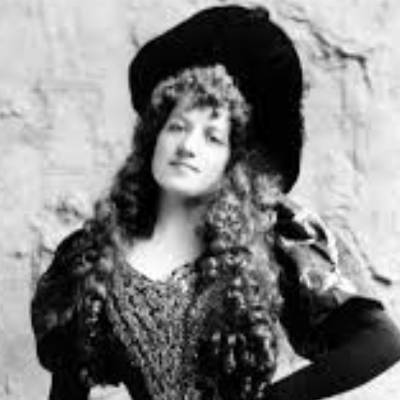
Lottie Deno
Childhood
Born on April 21, 1844, in Warsaw, Kentucky, Lottie Deno (originally named Carlotta J. Thompkins) came from a wealthy family. Her father was a racehorse breeder and an avid gambler who introduced her to card games at an early age. After his death during the Civil War, her mother sent her to Detroit to find a husband. Accompanied by her loyal nanny and protector, Mary Poindexter, Lottie instead turned to gambling to survive, traveling along the Mississippi River before settling in Texas.
Career
Lottie Deno arrived in San Antonio in 1865, where she became a house gambler at the University Club, working for the Thurmond family. There, she met Frank Thurmond, a fellow gambler with whom she would share a lifelong partnership.
When Frank was accused of murder and fled San Antonio, Lottie followed him across frontier towns, including Fort Griffin, Fort Concho, and Denison. At Fort Griffin, she gained fame as the "Queen of the Pasteboards" and became associated with notorious figures like Doc Holliday.
In 1877, Lottie and Frank moved to Kingston, New Mexico, where they ran a gambling room in the Victorio Hotel. Later, Lottie owned the Broadway Restaurant in Silver City.
Personal life
Lottie and Frank married in 1880 in Silver City. By 1882, they settled in Deming, New Mexico, leaving gambling behind. Frank became vice president of Deming National Bank, while Lottie helped establish St. Luke’s Episcopal Church. She lived a quiet, respectable life until her death on February 9, 1934.
Revenue
While exact figures are unknown, Lottie Deno was known for her success in gambling, earning enough to sustain herself and later invest in businesses like the Broadway Restaurant.
Interesting facts
- Her nickname "Lottie Deno" came from the Spanish word "dinero" (money).
- She was also known as "Mystic Maud," "Angel of San Antonio," and "Queen of the Pasteboards."
- The character Miss Kitty Russell from Gunsmoke was inspired by her.
- Lisa Gaye portrayed her in a Death Valley Days episode titled "Lottie's Legacy."
Legacy
Lottie Deno remains a symbol of independence and skill in gambling history. Her transition from a high-stakes gambler to a respected community figure adds depth to her legend.
Frequently asked Questions
Yes, Lottie Deno was a real gambler who became famous in Texas and New Mexico during the 19th century.
Her nickname came from the Spanish word "dinero" (money), reflecting her gambling success.
Some accounts suggest they crossed paths in Fort Griffin, but no definitive proof exists.
She married Frank Thurmond and became a respected citizen in Deming, New Mexico, helping found a church.
Yes, the character was partly inspired by her.
-
 Captain Jack CasinoPlayNo code needed
Captain Jack CasinoPlayNo code needed -
 Virtual City CasinoPlayNo code needed
Virtual City CasinoPlayNo code needed -
 Action CasinoPlayNo code needed
Action CasinoPlayNo code needed













